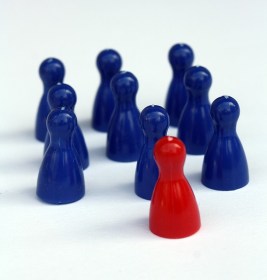This is the sixteenth #WILTW
The following tweet raises a number of interesting questions:
Seriously. Medical tweeps and FOAMites. Why are we so miserable, and why can’t we change it? #musings
— Olusegun Olusanya (@iceman_ex) August 30, 2014
Are we really that miserable? My immediate response was surely not! I think, by and large, my day-to-day interactions and social media output concurs with that. I admit a tendency to look a little more stressed than I actually am (although this has advantages in not being given a deluge of additional tasks…) but think/hope my outlook is generally positive.
But if I look a little deeper then there is something to reflect on. Going back through blog posts I can honestly say that my view of the world is not “wow – isn’t everything great!”. There is a slight negative aspect to a number of them and an underlying theme that change is a very long and laboured process. I look at my recent timeline and, although there are a fair sprinkling of supportive #nhschangeday and #FOAMed tweets, there are also not an inconsiderable number on difficult situations and challenging world events. On further reflection I must be honest that actually my interaction with social media (twitter in particular) is not always a “smiley-happy” experience. All too often I can be rankled by editorials or upset by the black-and-white nature of peoples thinking. I must also admit, and this is slightly painful, occasionally it is a little frustrating to see others comments and material go quasi-viral when you have had the same idea (or even previously released the same content).
Am I more miserable than I actually think…! It is a sobering thought.
I think this is good wake up call to the importance of mindset. Earlier this week, my wife and I, without our kids(!) watched the Lego Movie. I personally highly recommend this film. It runs out of ideas towards the end but basically nearly 90% of the jokes are adult orientated (or I am just a big kid perhaps). The signature tune is “Everything is awesome”
Once you have heard this tune you are destined to hum it for the rest of the week; so beware!
It’s likely there will remain times that content flowing in-and-out of social media is frustrating and incites a feeling of dejection and depression. But there are many other times when collaboration and support are clearly demonstrated to be intrinsic to the motivations of many FOAMites and Medical tweeps. And while Mike Cadogan’s frank review of his learning over the last 5 years is not a litany of joy – the nature of the comments on this post and the learning from it leads me to believe we will all be the better, and more positive, as a result.
Everything is awesome.
What have you learnt this week #WILTW










